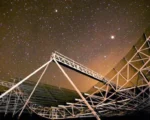Gravitational Waves Unlock Clues to Black Hole Ancestry Through Spin Analysis
Gravitational waves, the ripples in spacetime first predicted by Albert Einstein, have opened a new window into the mysteries of black hole formation and evolution. These waves, detected from black hole mergers, now offer valuable clues about the origins of these cosmic giants. By analyzing the spin of black holes, researchers have discovered that this characteristic can reveal whether the black hole was born from a series of mergers in densely packed star clusters. This breakthrough offers an exciting path toward understanding the complex lifecycle of black holes.
Study Links Black Hole Spin to Ancestry
A study recently published in Physical Review Letters details groundbreaking research led by Fabio Antonini from Cardiff University’s School of Physics and Astronomy. The team analyzed 69 gravitational wave events, shedding light on how black holes accumulate mass and evolve. Their analysis found that once a black hole reaches a certain mass threshold, its spin exhibits a noticeable shift. This shift aligns with models suggesting that black holes can grow and evolve through successive mergers, particularly in dense star clusters where smaller black holes often collide.
Spin as a Key Indicator
The study’s findings point to a significant correlation between a black hole’s spin and its history of formation. Isobel Romero-Shaw, a researcher at the University of Cambridge, emphasized that this study offers a data-driven approach to trace a black hole’s ancestry. High-mass black holes, in particular, were found to exhibit a spin that suggests they were formed in environments where smaller black holes frequently merge. This finding is crucial for constructing a more detailed and accurate picture of black hole evolution over cosmic time.
Implications for Understanding Black Hole Growth
These new insights into black hole spin could have far-reaching implications for the study of gravitational waves and black hole formation. By leveraging the data from gravitational wave observations, scientists are now able to reverse-engineer the evolutionary history of black holes. This approach helps identify not only the conditions under which black holes form, but also how they interact and grow over time. As more gravitational wave events are detected, the ability to trace the ancestry of black holes will further enhance our understanding of these mysterious objects, transforming our knowledge of the universe.


















